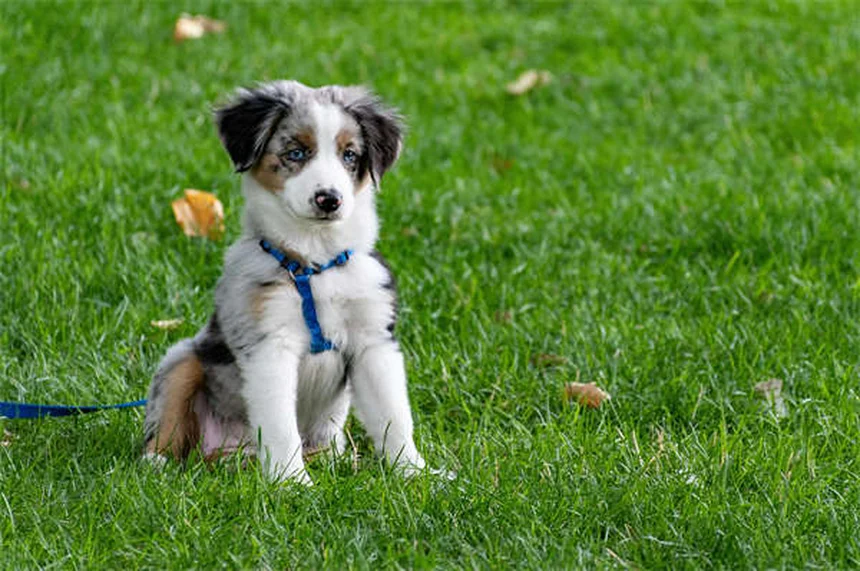What are kidney infections in cats? Let me break it down for you: they're serious business! Pyelonephritis (that's the fancy medical term) happens when bacteria invade your cat's kidneys - those hardworking filters that clean your feline's blood 24/7. While less common than bladder infections, kidney infections can turn dangerous fast if left untreated.Here's what you need to know right now: kidney infections won't go away on their own. Your cat needs veterinary care, usually antibiotics, and sometimes hospitalization. I've seen too many cases where well-meaning cat parents tried home remedies, only to end up with a much sicker kitty. The good news? With prompt treatment, most cats bounce back beautifully!In this guide, we'll walk through everything from spotting early warning signs (like your cat suddenly forgetting litter box manners) to understanding why some cats are more vulnerable (looking at you, diabetic kitties). I'll share insider tips from my years in veterinary medicine on what really works for prevention and treatment. Because let's face it - when your fur baby's health is on the line, you want real solutions, not internet myths!
E.g. :Pectus Excavatum in Cats: Symptoms, Treatment & Recovery Guide
- 1、What's Really Going On With Your Cat's Kidneys?
- 2、Is Your Cat Trying to Tell You Something?
- 3、Why Do Kidney Infections Happen?
- 4、How Your Vet Plays Detective
- 5、Fixing What's Broken
- 6、Keeping the Bad Guys Away
- 7、Your Burning Questions Answered
- 8、The Hidden Dangers of Dehydration
- 9、The Surprising Connection Between Stress and Kidneys
- 10、The Truth About Antibiotics and Kidney Health
- 11、The Future of Feline Kidney Care
- 12、Real-Life Success Stories
- 13、FAQs
What's Really Going On With Your Cat's Kidneys?
The Kidney's Superhero Job
Picture your cat's kidneys as two hardworking janitors inside their belly. These bean-shaped organs work 24/7 to filter out all the bad stuff from your cat's blood - we're talking toxins, waste, you name it. But here's the cool part: they're also like traffic cops, directing important electrolytes and proteins where they need to go.
Now imagine one of these janitors gets sick - that's what we call pyelonephritis (try saying that five times fast!). This infection hits the renal pelvis, which is basically the kidney's drainage system. Think of it like a clogged sink in your cat's body - nothing's flowing right!
Upper vs. Lower: The Urinary Tract Showdown
Did you know urinary tract infections come in different flavors? Here's the scoop:
| Type | Location | Commonality in Cats |
|---|---|---|
| Upper UTI | Kidneys | Uncommon |
| Lower UTI | Bladder/Urethra | Very Common |
Some cats are more likely to get these infections than others. If your cat has diabetes, kidney disease, or immune system issues, they're basically rolling out the red carpet for bacteria. And let's not forget those poor kitties born with kidney problems - they've got enough to deal with already!
Is Your Cat Trying to Tell You Something?
 Photos provided by pixabay
Photos provided by pixabay
The Not-So-Subtle Signs
Ever seen your cat acting like they've had three cups of coffee? Increased thirst and frequent bathroom trips might be their way of saying "Help!" Here's what else to watch for:
• Making weird noises while peeing (not their usual opera singing)
• Missing the litter box (and no, they're not just being dramatic)
• Pee that smells worse than your gym socks
The Silent Sufferers
Here's the scary part - early kidney infections often give zero warning signs. By the time you notice something's off, your cat might already be feeling pretty rough. That's why regular vet check-ups are like having a superhero sidekick for your cat's health!
Did you know cats are masters at hiding pain? It's true! While dogs will whimper and moan, your cat might just sit quietly while their kidneys are throwing a tantrum. That's why we need to be extra observant with these furry ninjas.
Why Do Kidney Infections Happen?
The Usual Suspects
Most kidney infections start with two troublemakers: E. coli and Staphylococcus bacteria. These microscopic party crashers usually begin their mischief down in the bladder before moving up to the kidneys. Talk about ambitious!
But why do some cats get these infections while others don't? Well, it's like asking why some people always catch colds while others never do. Some kitties just drew the short straw when it comes to their urinary tract anatomy.
 Photos provided by pixabay
Photos provided by pixabay
The Not-So-Subtle Signs
Certain conditions make kidney infections more likely. For example:
• Diabetes (the sugar overload helps bacteria throw raves)
• Kidney stones (like tiny boulders blocking the plumbing)
• Long-term steroid use (weakens the immune system's defenses)
Ever left your cat at the vet with a urinary catheter? That's another potential gateway for bacteria. It's like leaving your front door unlocked - sometimes unwanted guests sneak in!
How Your Vet Plays Detective
The Initial Investigation
When you bring your cat to the vet, they'll start with what we call "the sniff test" - just kidding! Actually, they'll:
1. Ask you a million questions about your cat's habits
2. Give your cat a thorough once-over (belly rubs included)
3. Probably suggest some blood tests
These blood tests are like reading your cat's personal diary - they reveal all sorts of secrets about kidney function, infection levels, and overall health.
The Advanced Tools
Ever seen those fancy ultrasound machines on vet shows? Your vet might use one to peek inside your cat's belly. It's like having X-ray vision! They might also:
• Analyze your cat's pee (yes, they really do this)
• Grow bacteria from the urine to identify the exact culprit
• Take some X-rays to check for stones or other blockages
Why go through all this trouble? Because treating a kidney infection without knowing the exact cause is like trying to fix a car without knowing what's broken - you might get lucky, but probably not!
Fixing What's Broken
 Photos provided by pixabay
Photos provided by pixabay
The Not-So-Subtle Signs
How your cat gets treated depends on how sick they are. Mild cases might just need some antibiotics (the cat version of chicken soup). But serious cases? That's when your cat might need:
• IV fluids (like a spa day for their kidneys)
• Hospitalization (the feline equivalent of bed rest)
• Stronger medications to fight the infection
And if there are stones causing trouble? Sometimes surgery's the only way to go. It's like when you have to call a plumber for a really stubborn clog - home remedies just won't cut it!
The Home Care Package
While your cat's recovering, you'll want to:
• Keep their water bowl full (hydration is key!)
• Maybe switch to wet food (more moisture = happy kidneys)
• Keep their litter box cleaner than your dinner plates
Remember, kidney infections aren't something you can treat with essential oils or home remedies. Sorry to burst that bubble, but your cat's health is worth the vet visit!
Keeping the Bad Guys Away
Prevention Is Better Than Cure
Want to help prevent future infections? Try these pro tips:
• Add more water bowls around the house (cats are lazy drinkers)
• Consider a cat fountain (running water = feline temptation)
• Reduce stress (yes, cats get stressed too!)
Did you know that for every cat in your home, you should have one litter box plus one extra? It's true! Cats are picky about their bathrooms, just like some people we know.
When to Sound the Alarm
If your cat shows any of these red flags, call your vet ASAP:
• Not eating for more than a day
• Acting super lethargic (more than usual cat laziness)
• Showing signs of pain when touched
Kidney infections can turn serious fast - we're talking kidney failure or even sepsis in worst-case scenarios. But catch it early, and your cat has a great chance of bouncing back to their normal, mischievous self!
Your Burning Questions Answered
Can Kidney Infections Spread to Other Cats?
Here's a question I get a lot: "Is my other cat going to catch this?" The good news is that kidney infections themselves aren't contagious. The bacteria causing them might spread in rare cases, but generally, your healthy cats are safe. Phew!
Are Certain Cat Breeds More at Risk?
You might wonder: "Does my Persian have a bigger risk than my tabby?" While any cat can develop kidney infections, breeds prone to kidney issues (like Persians with polycystic kidney disease) do have higher risks. It's all about those genetic cards they're dealt!
Remember, being an informed cat parent is the best medicine. Keep those vet appointments, watch for changes, and give your cat plenty of fresh water. Their kidneys will thank you - probably with purrs and headbutts!
The Hidden Dangers of Dehydration
Water: The Kidney's Best Friend
You know how you feel sluggish after forgetting to drink water all day? Your cat experiences the same thing, but with way worse consequences. While we can grab a glass whenever we're thirsty, cats evolved from desert animals who get most moisture from their prey. That's why modern house cats often don't drink enough on their own.
Here's a fun fact that's not so fun - cats need about 3.5-4.5 ounces of water per 5 pounds of body weight daily. But get this - a cat eating dry food would need to drink eight times more water than a cat eating wet food to stay properly hydrated. Makes you rethink those kibble-only diets, doesn't it?
The Domino Effect of Thirst
When your cat skips their water bowl, their urine becomes super concentrated. Think maple syrup instead of lemonade. This creates the perfect breeding ground for bacteria and crystals that can travel up to the kidneys. Before you know it, you've got a full-blown infection on your hands.
Ever notice how your cat turns their nose up at stale water? They're not being picky - their instincts tell them standing water might be contaminated. That's why changing their water at least twice daily makes such a difference. I've seen cats start drinking 30% more water just from this simple change!
The Surprising Connection Between Stress and Kidneys
How Anxiety Affects the Urinary System
Here's something most cat owners never consider - stress directly impacts kidney health. When your cat feels anxious, their body releases hormones that actually slow down urine production. Less pee means more time for bacteria to multiply in the bladder before getting flushed out.
Common stressors you might not realize:
• New furniture arrangements (cats are creatures of habit)
• Dirty litter boxes (would you use a filthy toilet?)
• Outdoor cats lurking near windows (territorial threats)
Creating a Kidney-Friendly Environment
You can dramatically reduce your cat's stress with some simple tweaks. Try placing water bowls away from loud appliances - nobody likes drinking next to a buzzing refrigerator! Multiple resting spots at different heights let your cat choose where they feel safest.
Here's a pro tip: use pheromone diffusers near litter boxes. These mimic the "happy signals" mother cats produce, creating instant calm. I've had clients report fewer urinary issues within 48 hours of installing these. Pretty amazing for something you can't even smell!
The Truth About Antibiotics and Kidney Health
When Medications Cause More Harm
This might shock you - some common antibiotics can actually damage kidneys if not used properly. Drugs like gentamicin are nephrotoxic, meaning they're hard on those precious bean-shaped filters. Vets walk a tightrope between killing infection and preserving kidney function.
That's why proper dosing matters so much. A 2018 study showed that 74% of cat owners admit to sometimes skipping antibiotic doses. Here's what happens when you do that - the bacteria don't all die, and the survivors learn to resist the medication. Now you've got superbugs that are harder to treat!
Supporting Recovery After Treatment
After antibiotic therapy, your cat's gut microbiome needs rebuilding. Probiotics specifically formulated for cats can help restore balance. Look for products containing Enterococcus faecium, a beneficial bacteria strain that survives stomach acid.
Don't forget about kidney support supplements either. Things like omega-3s from fish oil reduce inflammation, while antioxidants help repair damaged kidney cells. My rule of thumb? If it's good for human kidneys, there's probably a feline version that works similarly!
The Future of Feline Kidney Care
Breakthroughs in Early Detection
Veterinary medicine is making huge strides in catching kidney issues earlier. New urine tests can detect problems months before symptoms appear by measuring protein-to-creatinine ratios. Some clinics even offer at-home test strips that change color if kidney values are off.
Researchers are also developing "smart" litter boxes that analyze urine automatically. Imagine getting alerts on your phone about changes in your cat's hydration status! These should hit the market within the next two years, potentially saving thousands of feline lives.
Stem Cell Therapy and Beyond
At cutting-edge veterinary hospitals, stem cell treatments are showing promise for chronic kidney disease. Doctors harvest fat cells (yes, even skinny cats have some!), process them, and inject the healing components directly into damaged kidneys.
Gene therapy research is even more exciting. Scientists identified the gene responsible for polycystic kidney disease in Persians and related breeds. Future treatments might edit this gene in embryos, potentially eliminating the condition entirely. Now that's what I call progress!
Real-Life Success Stories
Mittens' Miraculous Recovery
Let me tell you about Mittens, a 12-year-old tabby who arrived at our clinic barely able to stand. Bloodwork showed creatinine levels off the charts - most vets would have suggested euthanasia. But her owner opted for aggressive treatment.
After two weeks of IV fluids, antibiotics, and subcutaneous hydration at home, Mittens rebounded amazingly. Today, a year later, she's back to stealing socks and ruling her household. Cases like hers prove that early intervention saves lives.
Whiskers' Weight Loss Journey
Then there's Whiskers, an obese cat whose kidney issues stemmed from diabetes. By switching to a high-protein, low-carb wet food and using puzzle feeders to slow eating, he dropped 4 pounds in six months. His kidney values improved so much we reduced his medications by half!
The lesson? Sometimes the best kidney treatment isn't medical at all - it's lifestyle changes. Whiskers' owner says he's more playful now than he's been in years. That's the kind of success that keeps me passionate about feline health!
E.g. :Kidney Infections in Cats | PetMD
FAQs
Q: How can I tell if my cat has a kidney infection versus a bladder infection?
A: Great question! While both conditions share some symptoms, there are key differences. With a bladder infection, you'll typically see frequent, painful urination and maybe blood in the urine. Kidney infections often cause more systemic signs like fever, back pain, vomiting, and extreme lethargy. Here's a pro tip: if your cat's breath suddenly smells like ammonia or they're drinking water like it's going out of style, that's your cue to suspect kidney trouble. Either way, don't play guessing games - get your vet involved ASAP. They'll likely run urine tests, bloodwork, and possibly an ultrasound to pinpoint the problem.
Q: Are home remedies effective for treating cat kidney infections?
A: Let me be brutally honest here - absolutely not. I've seen countless well-intentioned cat parents try cranberry juice, apple cider vinegar, or "natural" supplements, only to wind up with a critically ill pet. Kidney infections require prescription antibiotics (sometimes IV antibiotics for severe cases) and professional veterinary care. What you can do at home is encourage water intake with fountains or wet food, keep the litter box spotless, and reduce stress. But please, for your cat's sake, skip the DIY treatments and get proper medical help!
Q: How long does treatment for a cat kidney infection typically last?
A: Treatment duration varies, but most cats need 2-6 weeks of antibiotics. Here's the catch - you can't stop when symptoms improve! I always tell my clients to finish the entire course, even if Fluffy seems perfectly fine after a few days. Your vet will likely want follow-up urine tests to confirm the infection is completely gone. For complicated cases (like cats with kidney stones or diabetes), treatment might extend longer. Pro tip: set phone reminders for medication times, and consider pill pockets if your cat's a fussy eater!
Q: Can kidney infections cause permanent damage to my cat's kidneys?
A: Unfortunately, yes - that's why early treatment is crucial. Severe or repeated kidney infections can lead to scarring and permanent kidney dysfunction. The damage depends on factors like how quickly treatment began, your cat's overall health, and whether underlying conditions exist. Older cats and those with pre-existing kidney disease are most vulnerable. The silver lining? With prompt, proper treatment, many cats recover fully without lasting issues. That's why knowing the warning signs and acting fast is so important!
Q: What's the best way to prevent kidney infections in cats?
A: Prevention is all about hydration and hygiene. Here's my battle-tested prevention plan: 1) Provide multiple water sources (cats love running fountains!), 2) Feed wet food to boost moisture intake, 3) Have one more litter box than cats in your home, and 4) Clean boxes daily. For prone kitties (like seniors or diabetics), ask your vet about urinary health diets. Also, never ignore subtle changes - that "off" behavior might be the first clue something's wrong. Remember, an ounce of prevention is worth a pound of cure, especially with kidney health!

